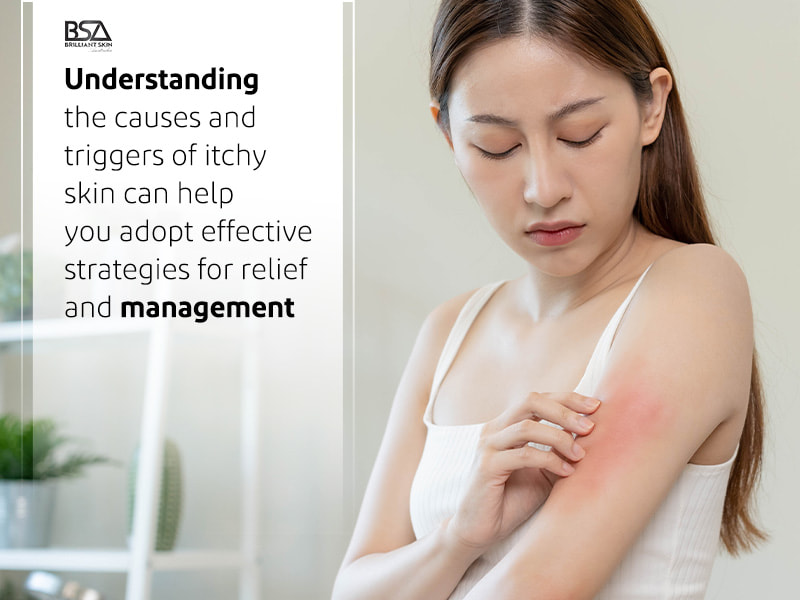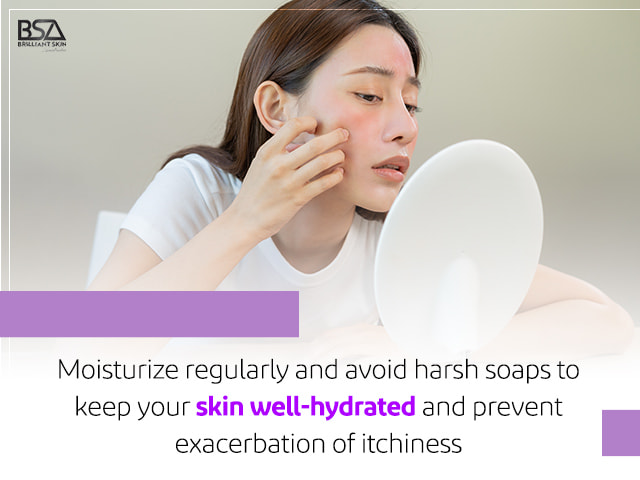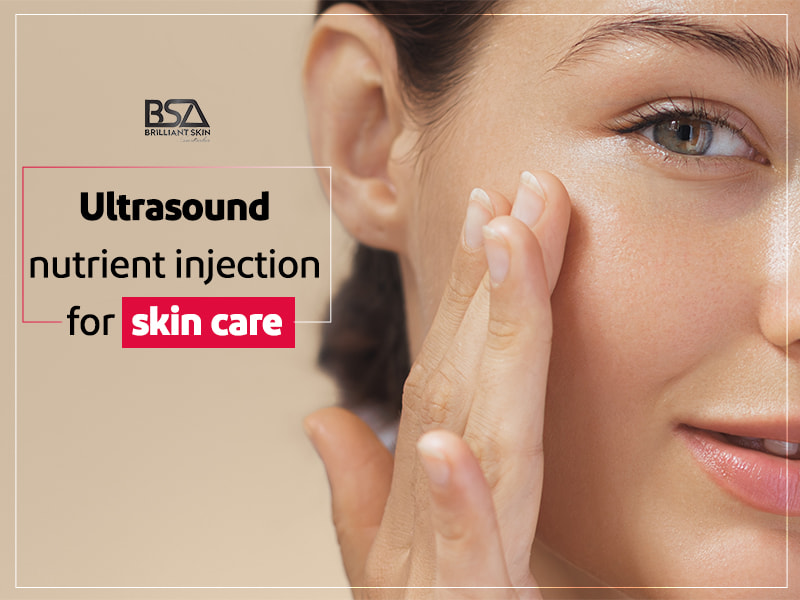The best ideas to get rid of itchy skin
- Updated August 16, 2023
- by Honey Seida

Itchy skin, medically known as pruritus, is a common condition that affects people of all ages. Whether it's a mild annoyance or a persistent discomfort, itchiness can significantly impact one's quality of life.
From dry skin to underlying medical conditions, there are various factors that can contribute to this sensation. In this blog post, we will explore the causes, symptoms, and effective strategies to manage itchy skin.
Understanding Itchy Skin
Itchy skin is primarily caused by the stimulation of nerve endings in the skin. This stimulation can be triggered by various factors, including:
Dry Skin
Dryness is one of the most common causes of itching. Environmental factors, such as low humidity, excessive bathing, or using harsh soaps, can strip the skin of its natural oils, leading to dryness and itching.
Skin Conditions
Numerous skin conditions can cause itching. Eczema (atopic dermatitis), psoriasis, hives (urticaria), and dermatographism are some examples. These conditions often involve inflammation, which can result in persistent itchiness.
Allergic Reactions
Allergies to certain substances, such as pollen, pet dander, or certain foods, can manifest as itchy skin. The allergic response triggers the release of histamine, a chemical that causes itching, redness, and swelling.
Insect Bites and Infestations
Mosquito bites, flea bites, or infestations like scabies or lice can cause intense itching due to an immune response triggered by the insect's saliva or the body's reaction to their presence.
Systemic Disorders
Itching can sometimes be a symptom of underlying medical conditions like liver disease, kidney failure, diabetes, or thyroid disorders. These conditions can disrupt normal bodily functions and manifest as generalized itching.
Managing Itchy Skin
Fortunately, there are several strategies and treatments available to alleviate itchy skin. Here are some practical tips to help manage this common condition:
It is better not to wash the skin with soap and hot water
Opt for mild, fragrance-free soaps and lukewarm water when bathing. Hot water and harsh soaps can further dry out the skin, exacerbating itching.
Identify and Avoid Triggers
Pay attention to potential triggers that worsen your itching. It could be certain fabrics, specific foods, or environmental factors. By identifying and avoiding these triggers, you can reduce the frequency and intensity of itching episodes.
Wear Loose-Fitting Clothing
Tight clothing can irritate the skin, leading to itchiness. Opt for loose-fitting, breathable fabrics like cotton to allow better air circulation and reduce friction.
Apply Topical Treatments
Over-the-counter or prescription creams containing hydrocortisone, calamine lotion, or antihistamines can help alleviate itching. However, consult with a healthcare professional before using any medication.
Cool Compresses
Applying a cool compress or taking a lukewarm bath can provide temporary relief from itching. Avoid scratching, as it can further damage the skin and increase the risk of infection.
Use skin moisturizing creams regularly
Moisturizing regularly is a key component of managing itchy skin. When the skin becomes dry, its natural barrier is compromised, leading to increased sensitivity and itchiness. By keeping the skin well-hydrated, you can help restore and maintain its moisture balance, reducing the likelihood of itchiness.

Points to Consider When Moisturizing Itchy Skin
Here are some important points to consider when moisturizing itchy skin:
Choose the right moisturizer: Opt for a fragrance-free moisturizer that is specifically formulated for sensitive or dry skin. Look for ingredients such as ceramides, hyaluronic acid, glycerin, or shea butter, which help to lock in moisture and soothe the skin.
Apply after bathing: Moisturizing immediately after bathing is crucial as it helps to seal in moisture. Pat your skin dry gently with a towel, leaving some moisture on the skin's surface, and then apply the moisturizer while the skin is still slightly damp. This helps to trap water within the skin, keeping it hydrated.
Consider the climate: In dry or cold climates, the skin tends to lose moisture more quickly, leading to increased itching and dryness. In such cases, you may need to moisturize more frequently throughout the day to maintain optimal skin hydration.
Avoid irritating ingredients: Fragrances, alcohol, and certain preservatives can irritate the skin and worsen itchiness. Choose products labeled as fragrance-free or hypoallergenic to minimize the risk of skin irritation.
Customize your routine: Everyone's skin is different, so it's essential to find a moisturizing routine that works best for you. Some individuals may need to moisturize multiple times a day, while others may find once or twice a day sufficient. Observe how your skin responds and adjust your routine accordingly.
Don't forget other areas: While it's common to focus on moisturizing the face and body, don't overlook other areas prone to dryness and itchiness, such as the hands, feet, elbows, and knees. Apply moisturizer to these areas as well to keep them hydrated and prevent itchiness.
Remember, moisturizing alone may not address the underlying cause of your itchy skin. If the itching persists or worsens despite regular moisturizing, it's important to seek medical advice to identify and address any underlying skin conditions or triggers that may be contributing to the problem.
By incorporating regular moisturizing into your skincare routine, you can help protect your skin's moisture barrier, reduce dryness, and manage itchiness more effectively.
ASAP Hydrating Night Repair+
ASAP Hydrating Night Repair+ is a moisturizing skin renewal treatment that offers a range of benefits for the skin. It contains AHAs (Alpha Hydroxy Acids), innovative peptides, and a powerful combination of antioxidants.
The overall benefits of ASAP Hydrating Night Repair+ include:
- Promoting smoother and more hydrated skin and avoid itchy skin
- Enhancing collagen and elastin production for firmer skin
- Improving skin texture and radiance
- Protecting against free radical damage
- Potentially reducing the appearance of fine lines and wrinkles
Remember, consistency is key when using skincare products, and it may take time to see noticeable improvements in your skin's appearance and condition.
Final Thoughts
Itchy skin can be an uncomfortable and frustrating experience. By understanding the potential causes and adopting effective management strategies, you can find relief and improve your overall well-being.
Remember, it's crucial to address persistent or severe itching with medical guidance to ensure proper diagnosis and treatment. Take care of your skin, and don't let the itch control your life.






